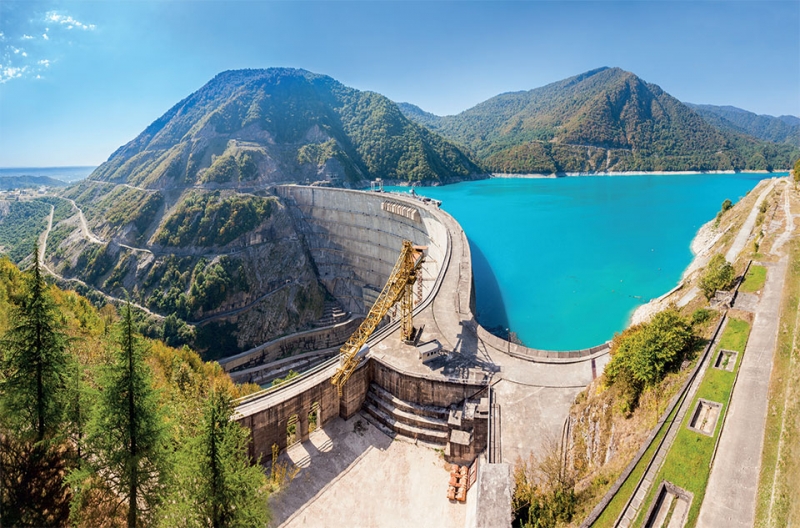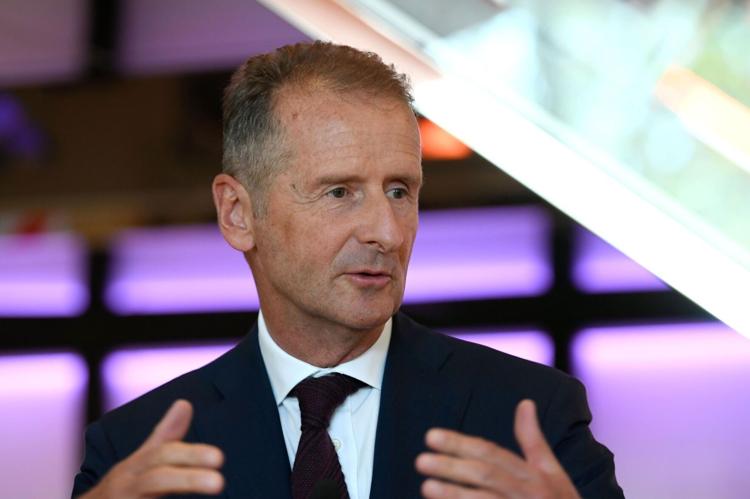As Georgia celebrates thirty years of independence, the country is still trying to free itself from economic dependence on neighboring states. As ever, this process is taking place against a background of high emotion. Neither the reasons for economic dependence, nor the methods for imposing it have changed during this thirty-year period. As far back as the 1980s, active propaganda and artificially created phobias ensured that people developed a negative attitude towards hydroelectric power stations. Who benefited from this propaganda? The fact of the matter is that construction of another large hydroelectric power station would have made neighboring states, including in the North Caucasus’, dependent on Georgia for energy. The growth of Georgia’s economic influence was not in the interests of any of our neighbors. At that time, alternative or renewable energy technology did not exist in Georgia, and hydroelectric power was the only source of green energy. Nevertheless, the powers that be discouraged the development of our country’s energy sector and came up with various reasons to keep us economically shackled to our neighbors.
This reliance has continued to the present day, but how much longer can we depend on countries where every decision is politically motivated, and where principles of a free market economy do not apply? If we wish to achieve true independence, we must think about developing our country, implementing new systems and technologies, supporting small and medium sized businesses, strengthening tourism and agriculture, as well as reforming the education system. We can realistically achieve all of this by developing an independent energy sector and by using our main natural resource – water – in an effective and reasonable manner.
This article aims to demonstrate why the development of hydroelectric power in Georgia is of paramount importance to the state, the business sector and the rural population. It will also be explained why the extent of the environmental damage caused by the construction of small hydroelectric power stations is minimal, and often comparable to the effects of building a hotel.
WHY IS THE DEVELOPMENT OF HYDROELECTRIC POWER IMPORTANT FOR THE STATE?
Our country can achieve real independence. It is a process that starts with economic independence, which then lays a strong foundation for political independence. Ultimately, it will also lead to a peaceful reintegration of the conflict zones.
Georgia’s economic growth rate is around the 5% mark. Tourism is one of the fastest-growing sectors, meaning that demand on electricity increases during the summer months. Energy consumption reached a record high of 1920MW in July last year. Tourism involves the decentralization of revenue sources, as well as the development and strengthening of regional economies. Aside from other infrastructural development, this requires a safe and stable source of electricity.
Record electricity consumption figures have also been forecast for this year – a 10.9% growth is expected in 2019, while by 2030, energy consumption will almost double from 13 billion kWh to 24 billion kWh. This means that without using our own renewable energy resources and building new hydroelectric power stations, not only will our dependence on the services. Most importantly, more than 60 locals, and around 100 Georgians in total, are employed in the main construction process and all of the secondary projects. Their average salary exceeds 1,000 GEL. We should also not forget about the indirectly employed – people who provide food for the whole group and hotel services for the workers, as well as companies that supply the construction materials. Our association also funds education for two young people in order to ensure that future generations are properly educated. This is only one example of the numerous projects that are already being implemented in this country.
In order to help resolve infrastructural and social problems in the regions, our association is currently working on a legislative initiative where the property taxes obtained from energy projects will be retained in full by local municipalities. More importantly, 40-50% of these funds will be spent on development of the villages and communities in the energy project implementation areas. As a result, the local population will be able to enjoy the material benefits derived from these projects in the short term. This legislative initiative can be extended to establish municipal funds that will accumulate tax funds, as well as funds allocated by investors for social projects. Municipalities and local self-government units will then be able to manage these funds as necessary.
WHY ARE ENERGY GENERATION PROJECTS IMPORTANT FOR BUSINESS?
Safe and stable access to electricity at competitive prices forms one of the three main pillars of the EU energy policy. It is a priority for all types of businesses to have stable and secure access to electricity, and for prices to be dictated by principles of a free market economy, as opposed to political motivations. Wrong signals sent out by neighboring countries can lead to a doubling of the price of energy carriers. Energy safety is a prerequisite for the safety and stability of our economy, while energy independence is synonymous with the country’s independence and rapid economic development. According to World Bank studies, Georgia will have the most dynamically developing economy in the region over the next ten years. However, this cannot be achieved without energy independence.
How do we respond to these challenges unless we are able to develop our energy sector with our own renewable resources? Hydro energy resources are Georgia’s best natural treasure. There are 26,060 rivers across the country, of which 300 have a combined potential power of 15,000MW and can generate 50 billion kWh of energy per year on average. This can be better illustrated in monetary terms, whereby according to the Georgian Electricity System Commercial Operator (ESCO), energy consumption is set to increase from the current 13 billion kWh to 24 billion kWh by 2030. If we can manage to realize our full potential and generate up to 50 billion kWh per year, we will be left with a spare 26 billion kWh of energy that we can export. With the average export price of electricity being $0.05 per kWh, our energy exports will be worth a total of 3.5 billion GEL each year. Consequently, instead of paying hundreds of millions of GEL to other countries, Georgia will be able to add 3.5 billion GEL to its budget. The numbers speak for themselves!
We should not be debating whether to build new energy facilities. Refusing to build them would virtually be the same as treason. Making sensible use of one of our country’s main resources – hydroelectric power – is the only right decision to make. What we ought to be discussing today is how to build more effectively, how to adhere to the highest standards of safety, and how to minimize environmental damage. That is what we should be devoting our energy and resources to.
Let me provide another example of one of our projects, where the construction process is being monitored by three environmental companies: the construction firm’s subcontractor, who is responsible for minimizing environmental damage during the construction process (for example, by preventing river pollution, ensuring appropriate management of hazardous waste, imposing strict controls on the tree cutting process, carrying out a fauna census prior to starting the cutting process and relocating the fauna outside the corridor to avoid damaging it); our own (i.e. the developer’s) subcontractor, who is responsible for devising the appropriate environmental standards and implementing them; and a company hired by the international investor, which oversees the overall development of the project and construction process from an environmental angle, as well as ensuring compliance with European environmental standards. Can you name any other infrastructure projects that approach the issue of protecting the country’s environment with such diligence?
We are currently going through the same process that most European countries, the United States and Japan went through in the last century; taking international experiences on board and trying to minimize the impact on the environment. Global experience has shown that the construction of small hydroelectric power stations is safe and less damaging to the environment. Our task now is to adapt these experiences to Georgia and start to care more deeply about the country’s secure economic development.












